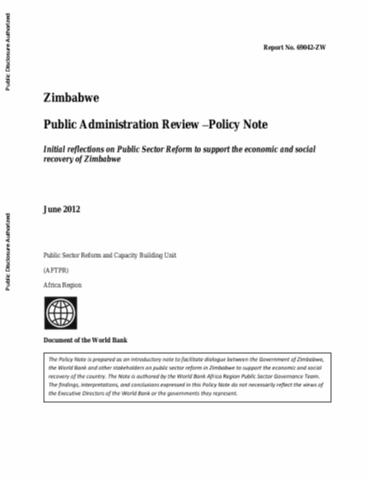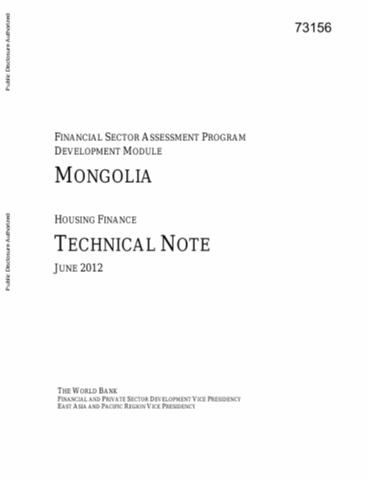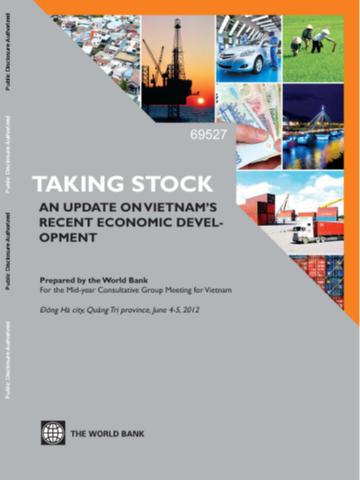The World Bank is a vital source of financial and technical assistance to developing countries around the world. We are not a bank in the ordinary sense but a unique partnership to reduce poverty and support development. The World Bank Group has two ambitious goals: End extreme poverty within a generation and boost shared prosperity.
- To end extreme poverty, the Bank's goal is to decrease the percentage of people living on less than $1.25 a day to no more than 3% by 2030.
- To promote shared prosperity, the goal is to promote income growth of the bottom 40% of the population in each country.
The World Bank Group comprises five institutions managed by their member countries.
The World Bank Group and Land: Working to protect the rights of existing land users and to help secure benefits for smallholder farmers
The World Bank (IBRD and IDA) interacts primarily with governments to increase agricultural productivity, strengthen land tenure policies and improve land governance. More than 90% of the World Bank’s agriculture portfolio focuses on the productivity and access to markets by small holder farmers. Ten percent of our projects focus on the governance of land tenure.
Similarly, investments by the International Finance Corporation (IFC), the World Bank Group’s private sector arm, including those in larger scale enterprises, overwhelmingly support smallholder farmers through improved access to finance, inputs and markets, and as direct suppliers. IFC invests in environmentally and socially sustainable private enterprises in all parts of the value chain (inputs such as irrigation and fertilizers, primary production, processing, transport and storage, traders, and risk management facilities including weather/crop insurance, warehouse financing, etc
For more information, visit the World Bank Group and land and food security (https://www.worldbank.org/en/topic/agriculture/brief/land-and-food-security1
Resources
Displaying 3411 - 3415 of 4907Zimbabwe Public Administration Review
In early 2010, Zimbabwe's Minister of Public Service requested Bank support for a public administration review to provide analytical support and technical assistance to identify the key issues to restore the quality of public administration in Zimbabwe. This policy note presents an initial framing of recent public administration reform experiences and lessons learned in Zimbabwe and set the agenda for future client engagement with a view to present reform options.
Incorporating Green Growth and Sustainable Development Policies into Structural Reform Agendas
This report examines how green growth and sustainable development policies can be incorporated into structural reform agendas. Indeed, as demonstrated in the report, many of these policies are closely linked and synergistic with the framework policies applied by G20 governments in their efforts to pursue strong and sustainable growth.
Mongolia Financial Sector Assessment
As the Mongolian mortgage market grows rapidly, and the Government of Mongolia (GoM) pursues an ambitious social housing agenda, there is an urgent need for a holistic sector approach. The following three key areas require attention from policymakers: first, there is a need to better balance housing supply and demand, which requires the authorities to focus on prudent mortgage lending standards and supervision, as well as on provision of housing infrastructure and zoned land.
Taking Stock, June 2012
The authorities' determined implementation of stabilization measures over the past year has helped to avert a macroeconomic crisis. If the deterioration of the macroeconomic environment in 2010-11 was rapid, the improvement in the situation in the past twelve months has been equally swift. Regaining macroeconomic stability has been costly, but not stabilizing the economy would have led to even bigger losses.
Lessons from the Dzud
Dzud is the Mongolian term for a winter weather disaster in which deep snow, severe cold, or other conditions render forage unavailable or inaccessible and lead to high livestock mortality. Dzud is a regular occurrence in Mongolia, and plays an important role in regulating livestock populations. However, dzud, especially when combined with other environmental or socio-economic stresses and changes, can have a significant impact on household well-being as well as local and national economies.










